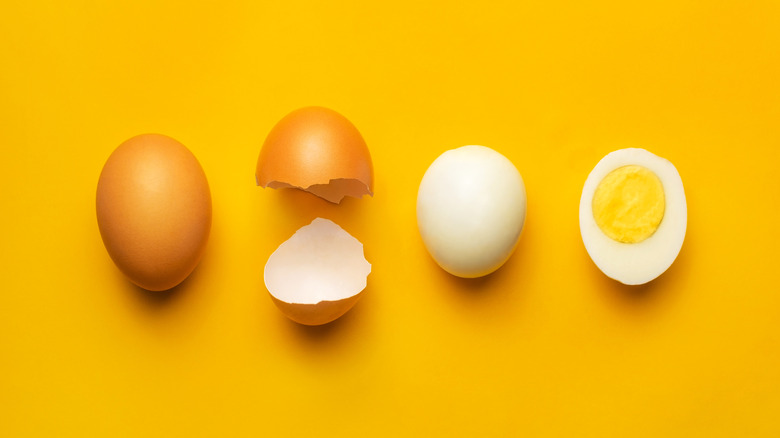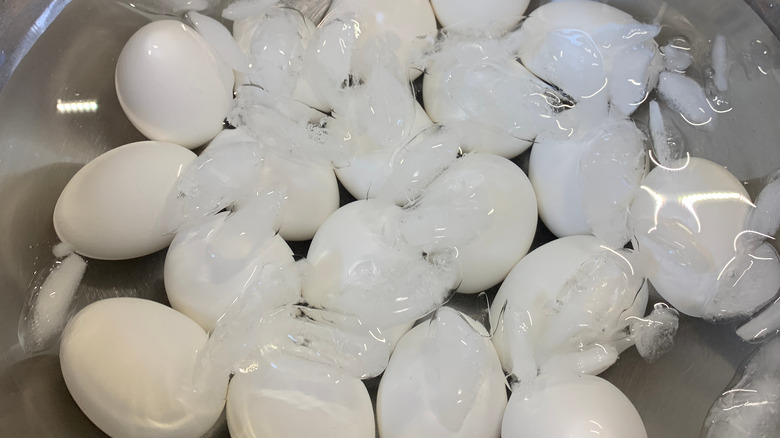Why An Ice Bath Is So Important For Perfect Hard-Boiled Eggs
Hard-boiled eggs are amazingly versatile. They're great as a quick breakfast, as a protein-rich snack on the go, in salads, sandwiches, and wraps, and as the star in deviled eggs, egg salad, and deviled egg salad. And though they're fairly easy to make, they're tough to get just right. For one, there seems to be an increasing number of ways to actually boil the egg. Besides using the standard pot on the stovetop (and either the boil, simmer, boil and steep, or steam method), you can also use an instant pot, sous vide, and even an oven, according to Food52.
There's also a debate as to whether it's better to start cooking the eggs in cold water or to drop the eggs into water that is already boiling (with Serious Eats arguing for the latter). However, there is one aspect of boiling eggs that just about everyone seems to agree on, and that is to use an ice bath after removing the eggs from whatever method of cooking you choose. So why is that? Why is an ice bath so important when making hard-boiled eggs?
An ice bath stops the eggs from continuing to cook
Timing is a big part of cooking the perfect hard-boiled eggs, and the ice bath is a part of achieving that perfect timing. When you plunge the eggs into a bowl of ice and water, the shock of the cold water stops the cooking process, preventing them from overcooking, explains The Spruce Eats. Otherwise, the residual heat in the eggs will continue to cook them, even after they have been removed from the source of heat. And as anyone who's ever overcooked an egg (which is probably everyone) knows, it doesn't take long to go from perfectly set egg whites and beautifully yellow yolks to rubbery egg whites and a chalky green-tinged yolk with a rotten egg smell.
To prevent that, make sure you use an ice bath. The Kitchn recommends using a metal bowl for the ice bath since it will keep the water temperature colder, but any bowl with ice and water should work. Keep the eggs in the ice bath until they are completely cooled, which could take up to 15 minutes. Another benefit to using the ice bath? It may also make it easier to peel those hard-boiled eggs, per Serious Eats. Which is a pretty cool bonus too.

